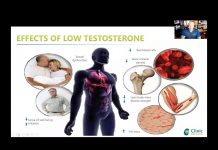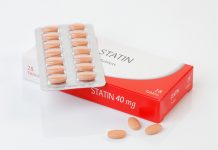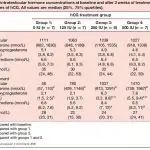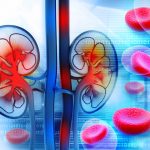Low serum free triiodothyronine levels are associated with the presence and severity of coronary artery disease in the euthyroid patients: an observational study.
Ertaş F, et al. Anadolu Kardiyol Derg. 2012.
Abstract
OBJECTIVE: The aim of this study is to investigate the relationship between serum thyroid hormone levels that are within the normal range and the presence and severity of coronary artery disease (CAD) in patients referred for coronary angiography.
METHODS: In this observational study, we enrolled 119 consecutive patients (77 men, mean age 60.7±13.8 years) who underwent coronary angiography. Blood samples were tested for thyroid stimulating hormone (TSH), free triiodothyronine (FT3) and free thyroxine (FT4) concentrations. Additionally, risk factors, clinical characteristics and angiographic results were obtained. The patients were separated into two groups according to the Gensini score as those with mild or severe atherosclerosis. Statistical analysis was performed using the Chi-square, Mann-Whitney U, correlation and logistic regression tests, and ROC analysis.
RESULTS: FT3 levels were significantly lower in subjects with CAD (4.0±0.7 vs. 4.6±0.6 pmol/L; p<0.001). Moreover, lower FT3 levels were found in patients with severe atherosclerosis (3.9±0.7 vs. 4.5±0.6 pmol/L; p<0.001). Logistic regression analysis demonstrated that the lower FT3 levels were associated with the presence (OR =0.266, 95% CI: 0.097-0.731, p=0.01) and severity (OR=0.238, 95% CI:0.083-0.685, p=0.008) of CAD. In the ROC analysis, a level of FT3 ≤4.2 pmol/L was found to predict the presence of CAD with 69% sensitivity and 71% specificity (AUC:0.744, 95% CI:0.653-0.834, p<0.001); and the severity of CAD with 75% sensitivity and 67% specificity (AUC:0.733, 95% CI:0.642-0.824, p<0.001).
CONCLUSIONS: FT3 levels within the normal range were inversely correlated with the presence and severity of CAD. Moreover, lower FT3 concentrations were correlated with the Gensini score and independently predicted the presence and severity of CAD. Thus, the FT3 levels may be used as the indicator of increased risk for CAD.
Check your free T3: https://www.discountedlabs.com/free-triiodothyronine-t3/
Recent Posts
Blood Test to Measure Efficacy of HCG in Men
The use of testosterone replacement therapy (TRT) increases blood levels of testosterone but, surprisingly, it decreases the level of testosterone inside the testicles (Intratesticular...
What is Your Chronotype and How Can You Use it to Improve Mood ?
From:
https://mobile.nytimes.com/2017/03/1...NyZAvb2t_bLwI-
Most of us have an indirect sense of our internal clock time just by knowing when we prefer to go to bed. But you...
Is the Cystatin- C Kidney Function Test Best for Muscular Men?
Since the concentration of cystatin C in the blood will not change due to infection or inflammation and isn’t affected by body weight, drugs...
ExcelMale.com Meal Plan
ExcelMale.com Maintenance Meal Plan
Monday
-7am: 2 scrambled eggs, 2 oz of smoked salmon, 1/2 avocado, 1 small serving of berries.
-11am: Kale Salad w/ 5 oz...
Testosterone and Hair Loss: What You Need to Know
Testosterone and Hair Loss: What You Need to Know
Testosterone replacement therapy (TRT) is one of the most effective methods for treating hypogonadism, erectile and...
















